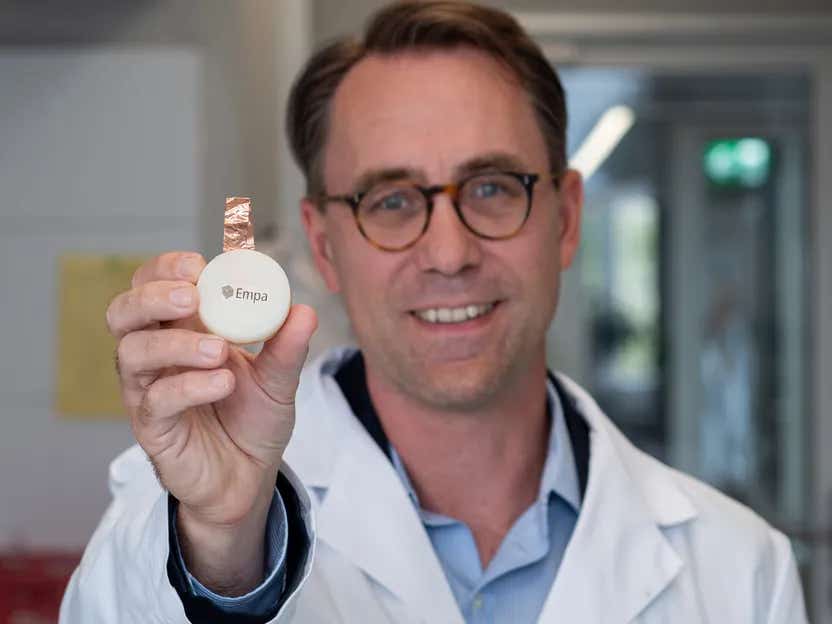Scientists discover the genetic causes of cerebral palsy
A recent Canadian-led study has pinpointed genes potentially linked to the development of cerebral palsy (CP).

A recent Canadian-led study has pinpointed genes potentially linked to the development of cerebral palsy (CP). (CREDIT: Creative Commons)
A recent Canadian-led study has pinpointed genes potentially linked to the development of cerebral palsy (CP), shedding light on a condition that affects children's motor skill development and is the most common physical disability in childhood.
While CP can stem from various factors like infections, injuries, or oxygen deprivation before or during birth, the genetic underpinnings have largely eluded researchers until now.
Scientists from The Hospital for Sick Children (SickKids), the Research Institute of the McGill University Health Centre (RI-MUHC), and Holland Bloorview Kids Rehabilitation Hospital collaborated on a multi-site Canadian project that delved into the genetic roots of CP.
Their findings, recently published in Nature Genetics, indicate a significant presence of genetic variations contributing to CP, potentially opening avenues for improved diagnosis and treatment.
Dr. Stephen Scherer, study co-lead and Chief of Research at SickKids, highlights the shift in understanding CP from being solely attributed to birth-related environmental factors to recognizing the intricate interplay between genetics and environment.
He remarks, "Now that we have a better understanding of the complex relationship between cerebral palsy's genetic and environmental factors, we hope we can improve care for these children."
Related Stories
The study involved whole-genome sequencing of 327 children with CP and their biological parents, comparing the data with multiple clinical and control cohorts. Results revealed that over one in ten children (11.3%) had a genetic variant or likely genetic variant associated with CP.
Additionally, 17.7% of children exhibited variants of uncertain significance that may be linked with CP upon further investigation. Many of these variants overlapped with other neurodevelopmental conditions, such as autism spectrum disorder (ASD), commonly found in children with CP.
Dr. Maryam Oskoui, study co-lead and Senior Clinician Scientist at RI-MUHC, emphasizes the significance of these findings in unraveling the complexities of CP and its causes. She notes, "Our findings are a step forward in better understanding the complex genetic and environmental risk factors... to help individualize future treatment approaches."
The number (%) of cases with subtypes of variants of potential clinical relevance in CP. (CREDIT: Nature Genetics)
The study's data, the first of its kind, are now accessible through the Brain-CODE analytics platform managed by the Ontario Brain Institute, facilitating global scientific research on genome sequencing data. Dr. Darcy Fehlings, co-first author and Senior Clinician Scientist at Holland Bloorview Kids Rehabilitation Hospital, underscores the importance of precision medicine in diagnosing CP and tailoring interventions for affected children.
Beyond immediate clinical applications, the research teams anticipate that the data will inspire further investigations into new genes and pathways associated with CP. Dr. Evdokia Anagnostou, Vice President of Research at Holland Bloorview, expresses excitement about the potential impact of this research on enhancing treatment options through precision health, ultimately improving the lives of children and families worldwide.
Gene-set analysis of de novo SNVs/indels and large TRs. (CREDIT: Nature Genetics)
This research was supported by the Childhood Cerebral Palsy Neuroscience Discovery Network (CP-NET), Illumina, the Ontario Brain Institute, the Canadian Institutes of Health Research (CIHR), the Research Foundation of the Cerebral Palsy Alliance, the McLaughlin Centre of the University of Toronto, Kids Brain Health Network, AllerGen NCE, Canada Foundation for Innovation, Genome Canada, The Centre for Applied Genomics and CGEn, and SickKids Foundation.
This research would not have been possible without the participation of patients and families across Canada.
For more science news stories check out our New Discoveries section at The Brighter Side of News.
Note: Materials provided above by The Brighter Side of News. Content may be edited for style and length.
Like these kind of feel good stories? Get the Brighter Side of News' newsletter.
Joshua Shavit
Science & Technology Writer | AI and Robotics Reporter
Joshua Shavit is a Los Angeles-based science and technology writer with a passion for exploring the breakthroughs shaping the future. As a contributor to The Brighter Side of News, he focuses on positive and transformative advancements in AI, technology, physics, engineering, robotics and space science. Joshua is currently working towards a Bachelor of Science in Business Administration at the University of California, Berkeley. He combines his academic background with a talent for storytelling, making complex scientific discoveries engaging and accessible. His work highlights the innovators behind the ideas, bringing readers closer to the people driving progress.



